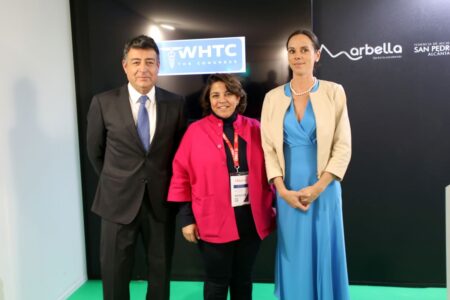"The bewo project launches the second edition of its study "Conversations with women CEOs"on the post-pandemic challenges faced by companies. After the first edition, which arose due to the slowdown caused by the pandemic in terms of diversity and inclusion policies, this new research aims to make women's work in leadership positions visible so that new generations have real references to imagine themselves leading companies in the professional sectors in which they want to work in the future.
The findings reveal a paradigm shift to be taken into account by leaders of organisations: employees are now asking for a more personal relationship between management and staff, as well as for an improvement in the management of emotions in the professional sphere by proactively addressing mental health.
"We could carry out economic studies, obtain productivity ratios or list new technologies to explain what has happened in recent years. But when we talk to women CEOs, we realise that what stands out is not related to all of the above, but rather to the management of emotions", say the creators of the study, Laura Inés Fernández (Bein Mindset) and Imma Folch (DEI Channel).
Mental health care and better quality of life, rising demands for young talents
According to The Adecco Group Institute32% of the working population in Spain acknowledges that their mental health worsened after the health crisis. For the CEOs of the "the bewo project" study, what emerged in the pandemic is a factor that has not disappeared, but emerged then and continues to this day. "The pandemic brought a lot of stressors into our daily lives, so the importance of mental health and general wellbeing came to the fore (to stay)," reflects Annabel Beyra, Partner Fusion Communications in the United States and a participant in the research.
"Health, emotional stability, mental disorders and affective needs have moved out of the personal sphere", says Imma Folch, CEO of the diversity consultancy DEI Channel. As the research of "the bewo project" concludes, this paradigm shift is not only a consequence of the pandemic, but also responds to the interests of new generations with new demands. "Young people value their quality of life over work responsibilities, while we come from generations accustomed to leaving our lives at work," says Natalia Tatian, CEO of Handicap Deportes in Argentina.
Teleworking, a challenge for maintaining personal relationships
According to the National Observatory of Technology and Society, the telework rate increased by almost 8% between December 2019 and the end of 2022. The penetration of this type of work in Spain is a step forward in terms of flexibility and work-life balance, but also a risk for teams, as people can feel isolated. In fact, the women leaders of the study point out that the pandemic "left the cohesion" of the workforce very damaged: "Teleworking is not always beneficial for the cultural identity of organisations, and that is why it is necessary to strengthen the links between our teams to improve the emotional situation of our people", says Isabel Martin Arija, CEO of Caja Rural de Salamanca.
"While many companies discovered remote working because of COVID-19, paradoxically the importance of team feeling and the emotional care of the team has been highlighted. The pandemic brought team meetings whose only agenda item was to know how they were doing," explains Laura Inés Fernández, CEO of Bein Mindset. "Rules, rigidity and styles based on obtaining economic results went away with the pandemic, generating greater well-being for employees... For now," she concludes.
Thus, the Conversations with Women CEOs" 2023 study In particular, women CEOs rank emotional management, mental health care, quality of life of the workforce and teleworking as the main post-pandemic challenges. For its part, "the bewo project" recalls another long-standing challenge: the gender gap in leadership positions and the need for female role models for the next generations.






